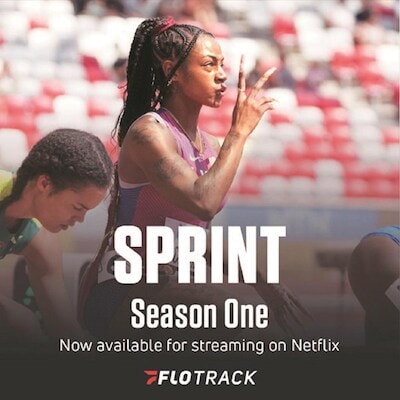The footage from France will eventually be part of the second season of Sprint, a Netflix documentary.
The four-person team at Box to Box Films, the production company behind Netflix’s hit motorsports documentary series Formula 1: Drive to Survive, have often filmed in lavish locations such as Monaco and Miami.
But on a recent morning, she gathered in a far less glamorous spot: a flimsy set of bleachers next to a running track in the Paris suburb of Eaubonne, where she waited about an hour for a practice session to begin.
“This is our life,” Warren Smith, a senior executive at Box to Box, said of the wait. It could have been worse: Across town, a second crew was filming a runner getting a haircut.
The footage from France will eventually be part of the second season of Sprint, a Netflix documentary that follows American 100-meter stars Sha’Carri Richardson and Noah Lyles and a dozen other track athletes.
The series is one of three projects being filmed during these Summer Games as part of a partnership between Netflix and the International Olympic Committee (IOC), a relative newcomer to the sports documentary genre but now an enthusiastic participant.
Much like Drive to Survive forged a deeper connection between fans and Formula 1 car racing, the IOC hopes these projects will spark awareness and interest among a new (read: younger) generation of Olympic fans. These include the track and field series, a gymnastics series called Simone Biles: Rising and another about the U.S. men’s Olympic basketball team.
So far, the effort has worked: both Sprint and Simone Biles: Rising have spent at least two weeks on Netflix’s Top 10 most-watched shows list.
“You can’t tell these stories every four years and expect them to remain relevant,” said Yiannis Exarchos, CEO of Olympic Broadcasting Services, the IOC’s media arm. “You have to tell them 24/7, and do it in a compelling way.”
Olympic athletes become national celebrities overnight during this three-week period every four years, thanks to their gold-medal-winning performances or memorable moments. But after brief victory laps in the morning and evening on U.S. television, athletes in sports other than football and basketball typically fall into obscurity for three years, competing in far less publicized international events. Americans, at least, focus their attention on the major sports, which receive round-the-clock coverage, even in the off-season, with free agents and manufactured prime-time spectacles.
The IOC’s partnership with Netflix and its coveted 278 million subscriber base is an attempt to mimic the frenetic pace of documentary production by other sports organizations and a partnership it hopes to replicate with other streaming services. It’s also an exercise for Netflix and production companies in exploring obscure sports and their characters.
Exarchos, who has worked at Olympic Broadcasting Services for nearly two decades, said this strategy represented a cultural shift. Previously, he said, the industry viewed the four-year gap as an advantage — a period in which to build anticipation for the next Olympic cycle. But engagement on Olympic social channels and the website had declined markedly in 2016, he said, and international federations were unable to compete in promoting their sports. Brandon Riegg, vice president of unscripted series and documentaries at Netflix, said the platform was tired of NBCUniversal’s exclusive domestic broadcast deal in the United States with the IOC. “We totally respect that and it never crossed our minds to engage with them,” he said.
Filmmakers have explored the athletic and geopolitical themes of the Olympics for more than a century, but on-demand viewing for many of its sports has lagged. The most popular sports have sought streaming dominance amid the decline of linear television.
Fans are now craving that format elsewhere. Data from the research division of United Talent Agency, which represents athletes and entertainers, revealed that 72 percent of potential Olympic consumers aged 15 to 45 said they were more interested in behind-the-scenes content from the Paris Games than during the Tokyo Games in 2021.
First published: August 7, 2024 | 11:34 PM IS
Disclaimer:
The information contained in this post is for general information purposes only. We make no representations or warranties of any kind, express or implied, about the completeness, accuracy, reliability, suitability or availability with respect to the website or the information, products, services, or related graphics contained on the post for any purpose.
We respect the intellectual property rights of content creators. If you are the owner of any material featured on our website and have concerns about its use, please contact us. We are committed to addressing any copyright issues promptly and will remove any material within 2 days of receiving a request from the rightful owner.

